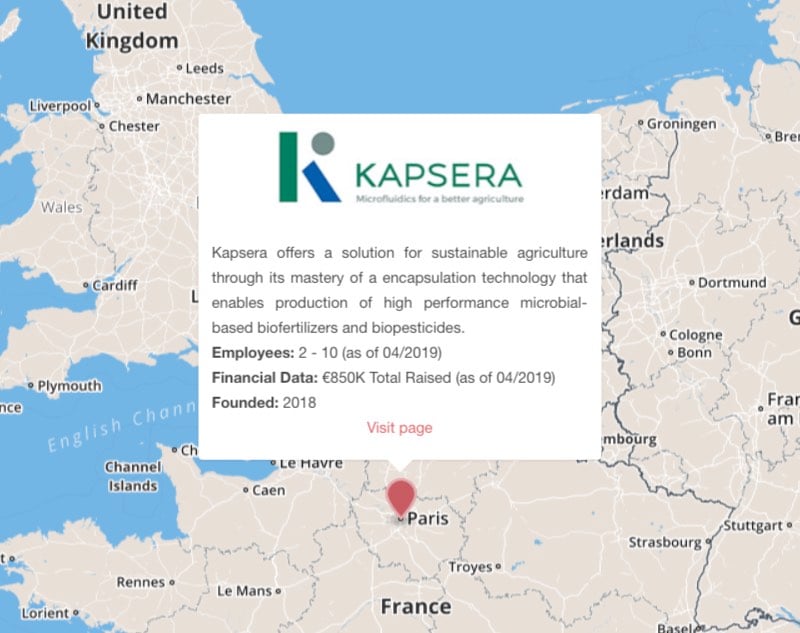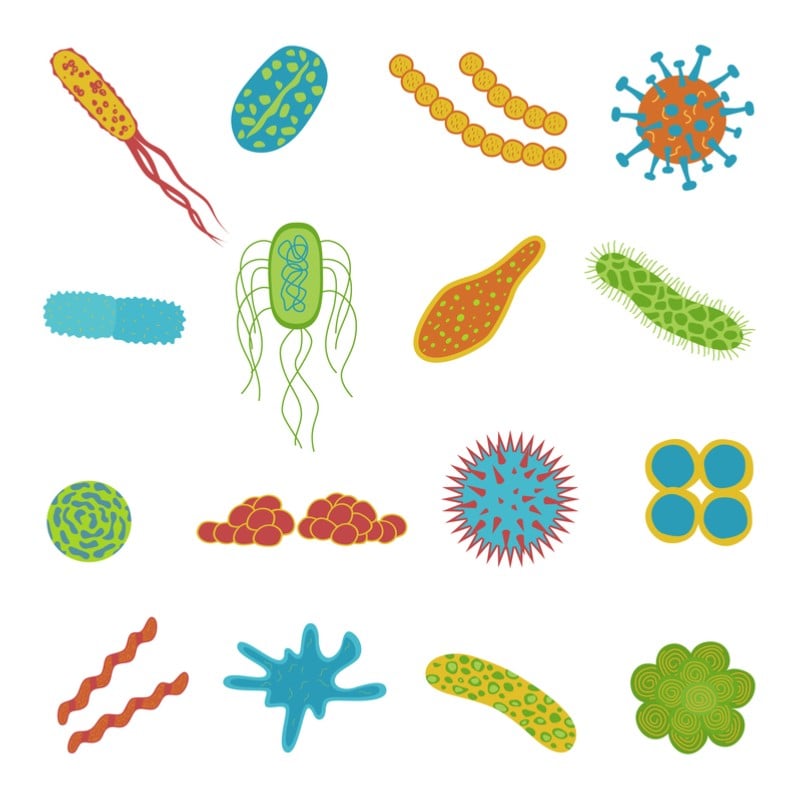Newsletter Signup - Under Article / In Page
"*" indicates required fields
We’re zooming over to France this week. The biotech Kapsera makes capsules of microbes that present a cheaper and more sustainable alternative to traditional fertilizers and insecticides.

Mission: To develop biodegradable capsules containing microbes. These treatments could control pests and fertilize crops in a more sustainable way than chemical treatments.
Agriculture is facing tough challenges in the years ahead, including a rising world population and arable land and water becoming scarcer. The traditional methods of improving food yield to match this demand — chemical fertilizers and insecticides — are unsustainable due to pollution and their negative impact on climate change.
One option to help with this problem is replacing traditional chemicals with microbes to enhance plant growth. Known as biofertilizers, these products change the microbiome of the soil to provide plants with nutrients and are less polluting than chemical fertilizers.
Biofertilizers are effective in greenhouses where you can control the environmental conditions. In the field, however, environmental stresses make the microbes less effective. Kapsera aims to overcome this limitation by supplying microbes in capsules made from alginate, a material derived from seaweed.
“The microcapsule protects the microorganisms inside a natural, biobased and biosourced nest before they are released at the right time in the field,” Antoine Drevelle, CEO of Kapsera, told me. “Microorganisms are then preserved, and farmers can apply little doses of highly efficient product in the field.”
Smaller than a grain of sand, the capsules consist of a liquid core that houses the beneficial microbes. This core is surrounded by a shell that lets nutrients and gases pass so that the microbes can survive inside.

With its technology undergoing field trials at present, Kapsera now aims to scale up the manufacturing process of the capsules. The company plans to set up a pilot plant by 2020, and to have the first commercial products for sale by 2021.
Founded in Paris in 2018, the company has raised a total of €850,000 to fund the development of its technology for the next two years.
What we think:
Efforts to make agriculture more sustainable, including biofertilizers, will help to reduce the ecological damage of a growing population, which is set to reach 9.3 billion by 2050.
Shielding fertilizer microbes with capsules is only one of the innovations that could make agriculture more sustainable. Joyn Bio, a US company set up by Bayer and Ginkgo Bioworks to develop new biofertilizers, uses synthetic biology to engineer microbes and make them better at fertilizing crops.

Other options include genetically engineering plants to make them more efficient to grow, like the chemical giant BASF does. Some biotechs avoid using genetic modification, which has strict regulations. The Israeli company Equi-Nom instead sequences the genome of pulses such as peas to accelerate selective breeding, and make the crops contain more nutrients.
Given the increasing pressure on agriculture, growers are being forced to turn to new methods of making agriculture more sustainable. “We are at the beginning of a revolution,” Drevelle concluded. “Farming practices will integrate big data, robotics and biotech products. Biotech will play a central role in providing natural, biosourced and biodegradable fertilizers and pesticides to take care of crops.”
Images from Shutterstock
Partnering 2030: FME Industries Report







